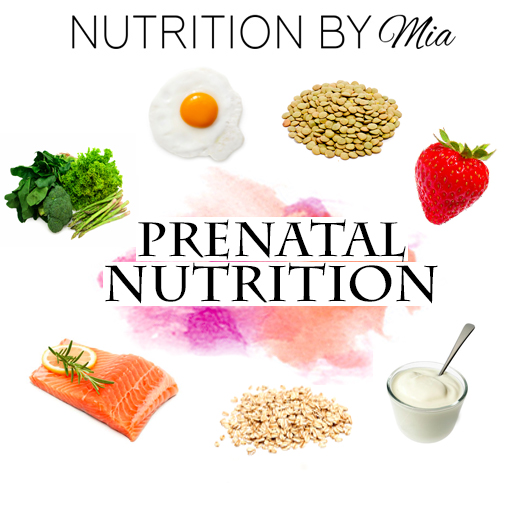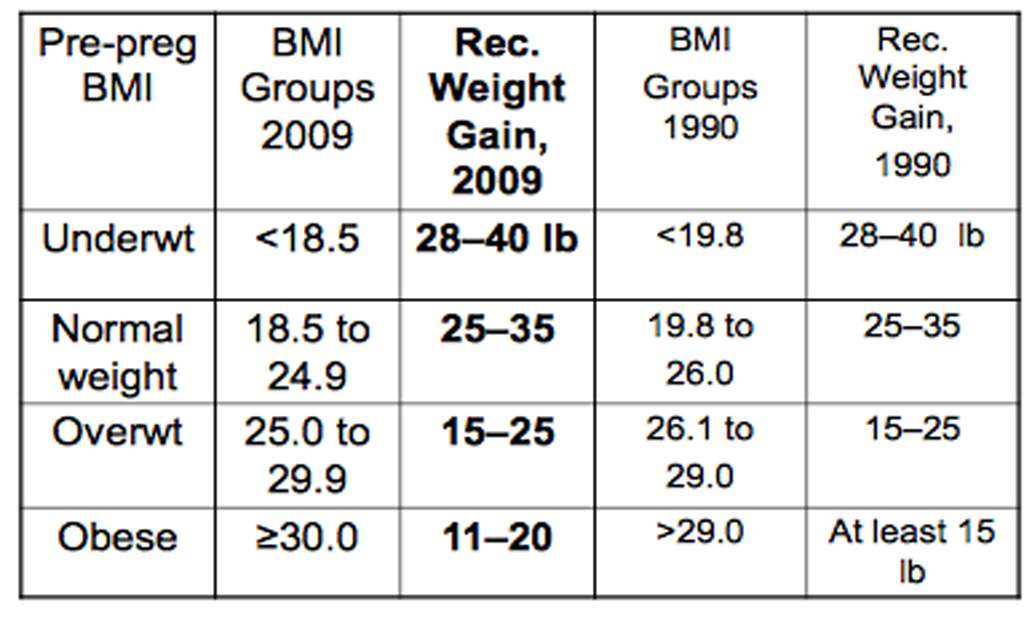
A healthy pregnancy starts long before conception. What many women don’t realize is that your lifestyle habits and what you eat have a significant impact on not only your own health, but the long-term wellbeing of your offspring. Though kale and leafy greens should become your best friends (hello folic acid!), there are other important nutrients to focus on, and things to consider when considering pregnancy which includes exercise and a basic understanding of epigenetics.
Healthy Pre-Pregnancy BMI= Healthy Baby
Being within a healthy weight (BMI range 18.5-24.9) will result in the healthiest pregnancy with the lowest risk of developing gestational diabetes, preeclampsia, or high blood pressure. Your pre-pregnancy BMI will determine the healthist amount of weight you should gain during your preganacy. Weight gain is needed to protect maternal nutritional status, prepare the supply line for the conceptus, ensure adeqaute oxygen delivery to the uterus, ensure adequate glucose availability and enable postpartum surival of both the mother and newborn.

Nutrients Of Concern:
Folic Acid: This nutrient is particularly important for woman thinking about pregnancy. A deficiency in folic acid can lead to neural tube defects in the offspring including anencephaly and spina bifida- incomplete closure of the neural tube over the brain or spine. Research shows that more than 75% of non-pregnant women ages 15-44 years do not even get 400 ug daily. Folate food fortification was mandated in 1998 in the US and folic supplements are still advised for women of reproductive age. It is advised that women supplement before and early in pregnancy.
Food Sources: dark leafy green vegetables, beans, asparagus, strawberries, nuts
DRI: 1000 mcg/day
Vitamin B12: This vitamin is another nutrient of concern for pregnant women and those looking to get pregnant. One study showed that infants of deficient vegans and vegetarians demonstated failure to thrive, irritability, hypotonia, lethargy, reduced brain growth, megaloblastic anemia and developmental delay. Since little to know Vitamin B12 is found in plant-based foods, it is important for vegetarians to supplement elsewhere.
Food Sources: meat, seafood, poultry, dairy, eggs
DRI: 2.4 ug/day before pregnancy, 2.6 ug/day during pregnanayc, 2.8 ug/day for lactation.
Iron: This nutrient is cirtial for red blood cell development and basic metabolism. All cells of the fetus require it. Iron has been identified as the number one nutritional disorder in the world. Iron deficiency in pregnancy can raise risk for preterm birth, reduce newbown iron stores, delay infant motor and mental function.
Food Sources: lean beef, oysters, clams, turkey, poultry, fish. Non-heme sources: spinach, oatmeal, beans, lentils.
DRI: 2.4 mcg/day pre-pregnancy, 2.6 mcg/day pregnancy.
Iodine: This element is needed mostly for thyroid hormone synthesis and metabolic acitivty. It is essential for the development of the skeleton and CNS in the fetus and child. Lack of iodine can result n cretinism wich is characterized by mental deficiciancy, deaf-mutism, stunded growth, hypothyroidism, and disorders of stance and gait.
Food Sources: seaweed, dairy, grains, eggs
RDA: 150 mcg/day pre-pregnancy, 220 mcg/day pregnancy
Vitamin D: This nutrient works in conjunction with calcium and is important in aspects of brain development, immune function, hormone secretion and cell proliferation. Deficiency can lead to rickets and failure of mineralization of teeth and bones in newborn as well as osteomalacia in mother
Sources: sun, fatty fish, fortified foods
DRI: 15 mcg
Epigenetics and Fetal Programming
Growing evidence suggests that a pregnant woman’s food choices can significantly shape the health of their offspring. This is through a process called epigenetics which involves the mechanisms that turn individual genes on and off. A healthy and balanced diet is your best means of influencing the optimal health of your child.
One example of fetal programming was the Dutch Winter Hunger in 1945-1945 which showed that exposure to famine in the first trimester was associated with 5% increase in child’s BMI which was also associated with increased prevalance of cardiovascular disease, insulin resistance and impaired cognitive function later in life. In this case the materal environment communicated nutrient availability to the fetus allowing it to prepare for post-natal life.
Exercise
During pregnancy, exercise not only helps you stay physically healthy and in shape, it can provide a number of benefits that promote the health of your pregnancy. These include easing or preventing back pain, boosting your mood and energy levels and helping you sleep better. On a physiologic level, pregnancy might also reduce your risk of gestational diabetes and pregnancy-related high blood pressure.
Send your nutrition topic suggestions to ask@nutritionbymia.com! You can follow us on Facebook and Instagram to keep us with our nurition tips, recipes, entertaining ideas and collabs.












